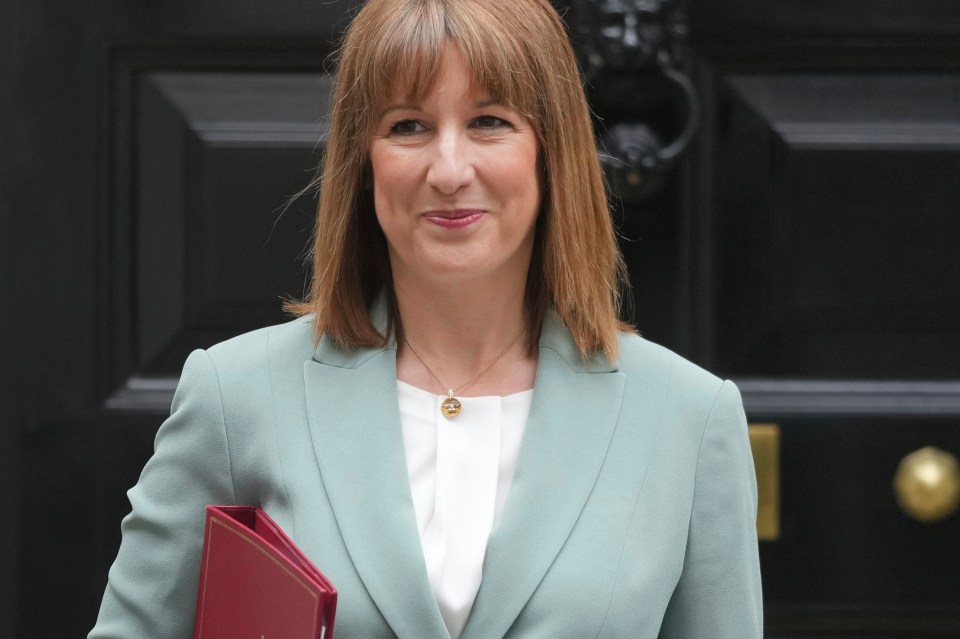RACHEL Reeves heads back to Westminster this week – but it will be the grim news coming out of Paris that will be on her mind.
France is heading for an economic black hole and it looks like Britain is not far behind.
The French government is struggling with a massive debt crisis. Debt has hit an eye watering €3.3 trillion or £2.8 trillion and could grow bigger still.
Finance Minister Eric Lombard has warned they may have to go cap in hand to the International Monetary Fund (IMF) for a bailout.
This financial crisis has left Emmanuel Macron’s administration teetering on the brink of collapse as they try to get nearly £38 billion of tax hikes and spending cuts through the National Assembly.
Reeves has good reason to be worried.
Just over a year into this Labour government, there are growing signs that Britain is following France and heading for some form of economic and financial crisis.
Like France, it is the high level of public spending and rising debt which is the main worry.
This is leading to escalating borrowing costs for UK government debt and is also pushing up inflation.
Unless things drastically change, we may be heading for our own IMF bailout.
What has gone wrong for the Chancellor?
She came into government promising to “fix the foundations” of the public finances and follow strict financial rules.
But Rachel Reeves is not following the policies of an “Iron Chancellor” as she had promised.
Her first and biggest mistake was to announce very big increases in public spending in her first Budget last October.
By the end of this Parliament, she will be spending £100bn a year more than promised by the previous Conservative government.
The bulk of this rise in spending is planned to take place by the end of this financial year (2025/26).
To try and make her Budget sums add up, she has raised taxes.
Higher National Insurance contributions have increased employment costs, particularly for supermarkets, pubs, restaurants and hairdressers.
There have been other tax increases too – like VAT on private school fees plus rises in capital gains tax and inheritance tax.
At the same time, bosses are having to pay more for workers because of a big rise in the minimum wage.
All this is adding further fuel to inflation in the UK economy and dampening economic growth.
Despite these tax increases, government borrowing remains too high.
In the past 12 months, the UK government has borrowed over £155bn.
That is around £5,500 for every UK household.
A sustainable level of public borrowing is half this level.
The Chancellor has been able to get away with this because her borrowing targets are based on five-year plans.
She can promise to cut borrowing in the future, while the deficit continues to rise in the short-term.
But the bond markets – which supply finance to governments around the world – are getting increasingly nervous about lending to the UK.
As a result, the cost of borrowing for the UK government has soared.
We are paying much more than other European countries for our borrowing – even France.
Speculation about an IMF bailout for France will worry Rachel Reeves for another reason.
There are eerie parallels between the current Chancellor’s predicament and an earlier Labour Chancellor – Denis Healey.
He famously was forced to go cap in hand to the IMF nearly 50 years ago in 1976 in a humiliation for Britain.
Healey had tried to combat the massive rise in oil prices and global recession in 1974 and 1975 by hiking public spending.
He funded it with a mix of tax rises and higher borrowing.
The result was an economic disaster.
But now Rachel Reeves is following the same path of rising public spending and taxes.
Like Healey, Reeves is also being hit by higher inflation which is adding to her problems.
The price of IMF support in 1976 was a package of public spending cuts which Healey and Prime Minister Jim Callaghan forced through the Cabinet – despite strong opposition from Labour left-wingers like Tony Benn.
Rachel Reeves is expected to try and plug the hole in her financial plans with tax rises in this year’s autumn Budget.
But that may not be enough to make her sums add up, especially if she continues to try and keep to the Labour manifesto commitment not to raise income tax, VAT and employee National Insurance.
The UK may not end up calling in the IMF.
Pressure from financial markets could be enough to force the government to cut excessive public spending which is the root cause of the UK’s financial problems.
But Rachel Reeves has already faced mutiny from Labour MPs to modest proposals to trim spending on welfare.
Will they let her take the axe to sky high public spending?
Either way one thing is for sure – the risk of a major financial crisis is increasing and the outlook for the Chancellor is bleak.













